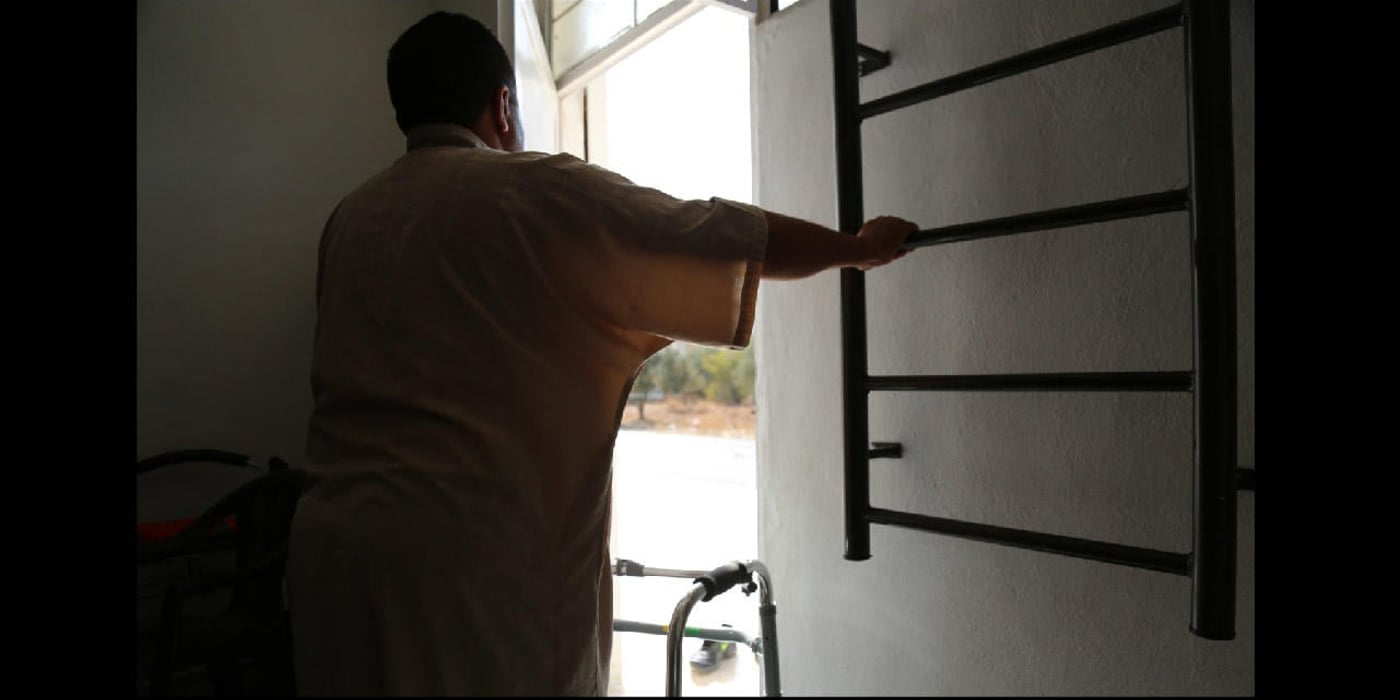
The father of four had a wonderful life in Dara’a in the south of Syria.
“I had healthy children, a good business and a small house,” he says. “I had livestock which gave us milk, and which I used for farming. Now it’s all gone.”
Escaping home
Their house was on the frontline, in the middle of shootings, bombings and invasions. One day, a group of armed men came and told Karam and his family to leave. They wanted to use their house as a vantage point.
“My children were frightened,” says Karam. “We were in a very vulnerable situation, we had to leave the house.”
After two months, Karam heard that his village was safe again and the family returned home.
“Everything was stolen, except the livestock,” he recalls. “The house was ramshackle and full of bullet holes.”
They stayed in the house for five months, during which Karam sold the livestock. Then the family left their home a second time, and went to live with relatives in a near village.
But they didn’t escape the shootings and bombings.
“We were more than 18 people living in the house. Children, old people, women,” Karam recounts. “They started bombing us. The first bomb missed, but the second one was close. The third one hit the house. Luckily, no one in the house was hurt except me.”
He was hit by shrapnel in his leg.
No medicine
In 2003, Karam was diagnosed with Multiple Sclerosis, a disease that damages parts of the nervous system, resulting in a range of physical and mental symptoms.
“I received treatment regularly, but had to stop when the war started in 2013.The medicine was no longer available,” says Karam.
As he could not reach any medical facility, he was not able to have the shrapnel in his leg removed. Karam’s condition worsened.
Meanwhile, the conflict in Karam’s home village continued escalating and life became more frightening. In the end, the family decided to leave Syria.
“It was a cold night when we left,” Karam recalls. “I saw fear in my children’s eyes. It was not an easy decision, as my medical condition was getting worse, and I could hardly walk.”
Escaping to Jordan
Karam and his family escaped in March 2014 and went to Jordan. The journey took more than two days. They had to make long detours to avoid armed groups on the way.
“When we reached the Jordanian border, more than 500 people were there,” says Karam. According to The UN Refugee Agency (UNHCR), Jordan received more than 40,000 Syrian refugees in 2014 because of escalating conflict in the southern part of Syria.
They ended up in Irbid, in the north of Jordan, but accommodation was too expensive. After relocating several times, the family found an empty, small, rundown warehouse.
“We just wanted to find a place to stay. There were no windows, no tiles, no kitchen and no proper bathroom,” says Karam.
Asking his children for help
Karam received the hotline number of the Norwegian Refugee Council (NRC) from his neighbour. He called to ask for support.
“A woman and a man came and examined the house,” he explains. “They asked us what we needed for the house.”
Karam wanted a bathroom, one that could be more accessible for him.
“You have no idea how hard it is to ask your children to help you in the bathroom,” he explains. “Sometimes I had to ask them to stay home and not go to school to help me.”
To make Karam’s life at home easier, NRC installed supporting bars and an accessible toilet and shower. He also received a walker. Now that Karam is able to move around the house, he believes that his children feel less pressured to stay at home to help him.
*The name has been changed to protect their identity.


